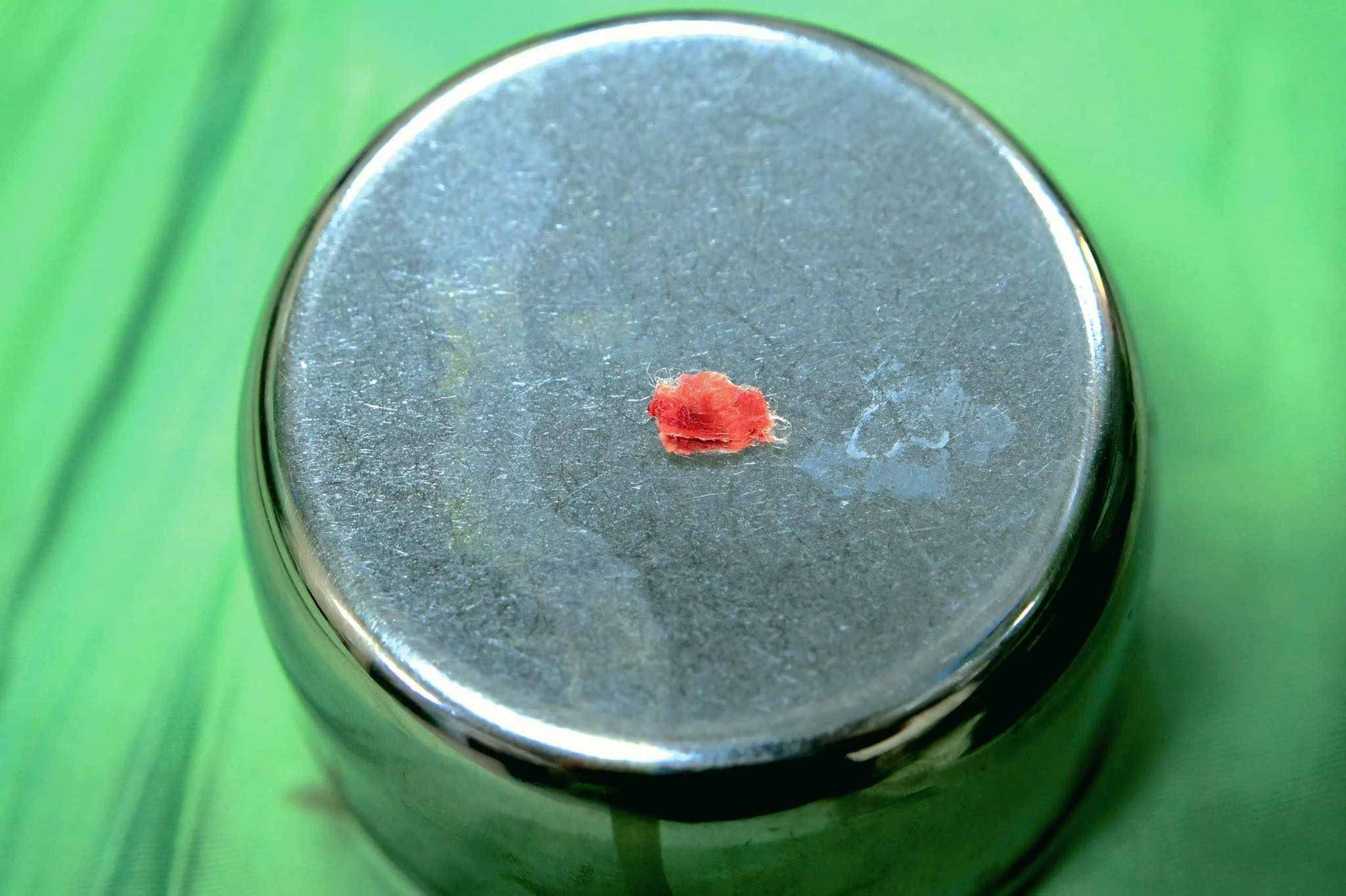According to information from the hospital, the 7-year-old patient was taken by his family to the Voluntary Examination Department for examination in a state of bad breath with a persistent foul smell. Previously, the child had been examined at many medical facilities but the cause was not yet determined.
During the examination, the doctor discovered a cotton-shaped foreign object that had stuck tightly to the lining of the frontal and rear vaginal walls. Because the foreign object could not be removed using conventional techniques, the patient was transferred to the A5 Surgery Department for further treatment.
Associate Professor, Dr. Le Thi Anh Dao - Head of the Department of Surgery - conducted an assessment and used a specialized scanning light to observe carefully. The foreign object was identified as the head of a flower toothpick, which had eaten deeply and firmly attached to the vaginal lining.
Endoscopic intervention was performed in the operating room. The foreign object was successfully removed, minimizing damage to the lining of the baby's kinal area.
According to doctors, vaginal foreign bodies in young children are a rare situation but pose many risks if not detected and treated promptly. This condition can lead to prolonged vaginal inflammation, severe infections, mucosal damage, the formation of fibrosis scars, and even affect psychology and fertility later.

Notably, young children often cannot accurately describe the discomfort or cause of discomfort, so the examination requires gentleness, meticulousness and precise technique. V bagal foreign bodies in children often come from familiar items in daily life such as towels, toilet paper, shirt bonds, small toys, etc.
The doctor recommends that parents should pay attention when their children have unusual symptoms such as gasoline exchange, odor, itching or closed area pain, should take their children to a gynecological medical facility for examination, not self-treat or use prescription drugs without a prescription. At the same time, it is necessary to instruct children on how to keep hygiene suitable for their age, keep away small, sharp objects that can easily damage the kinal area and not let children play alone with objects that can easily get into the body.
Early and proper diagnosis and treatment will help avoid complications and protect children's long-term health.










